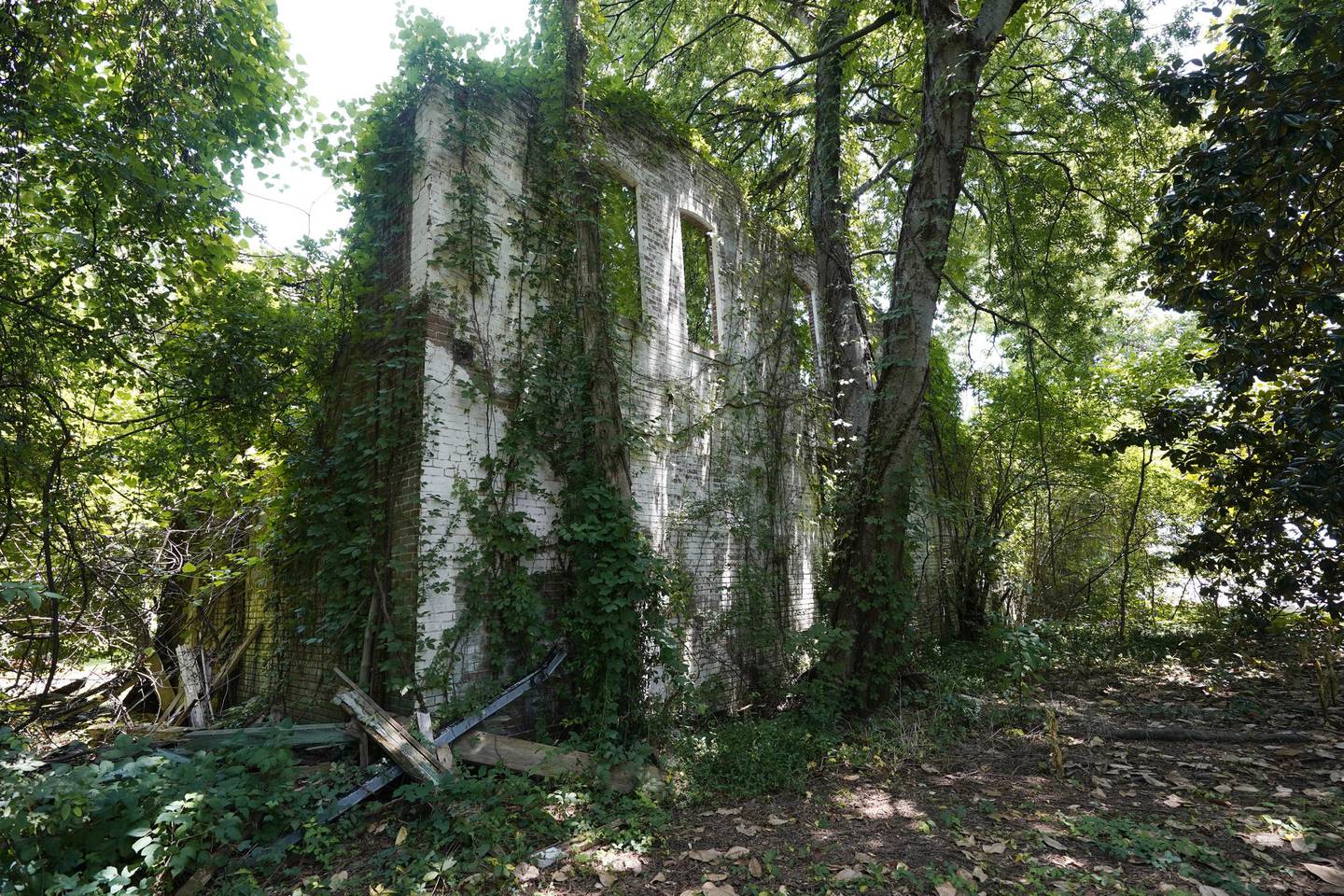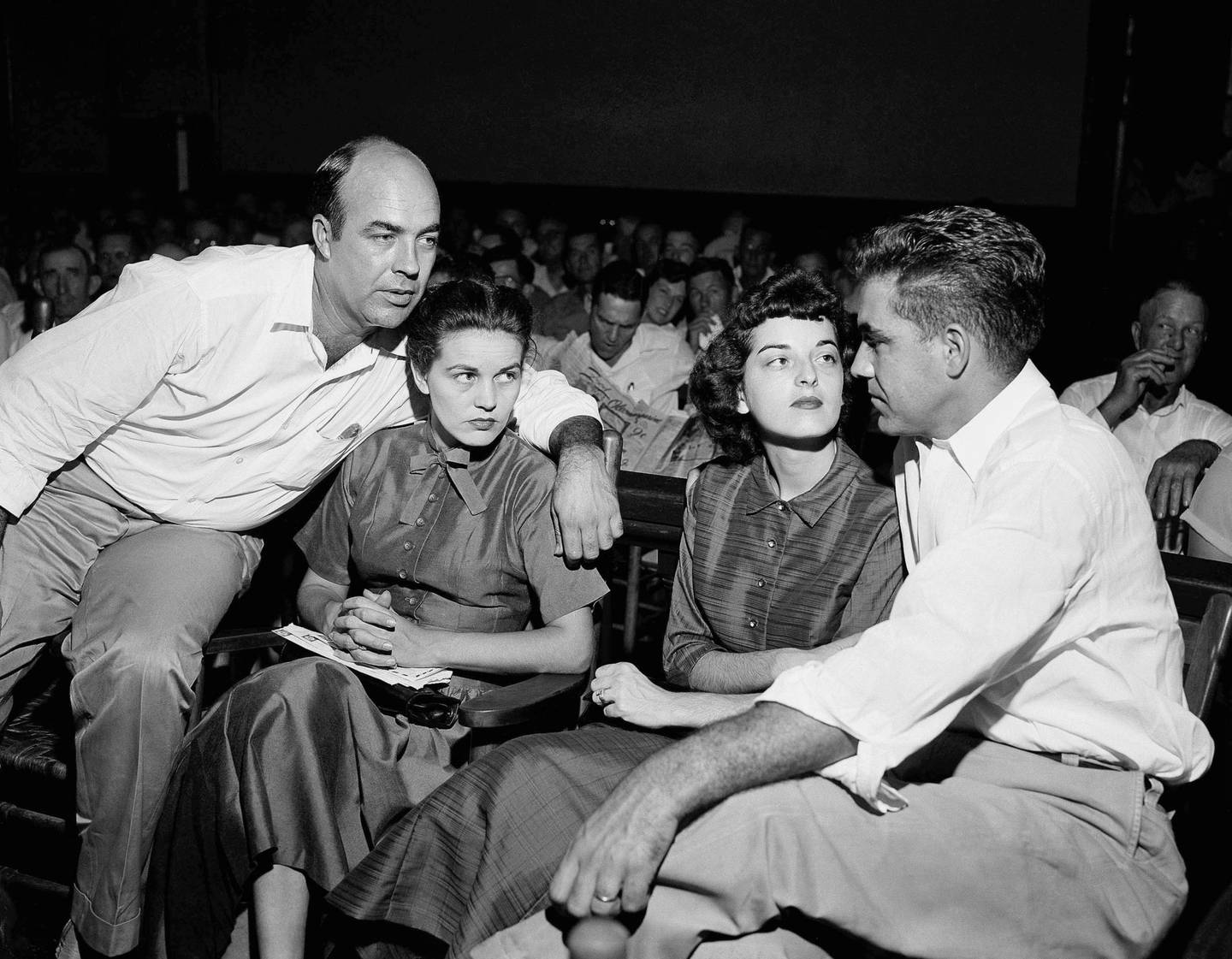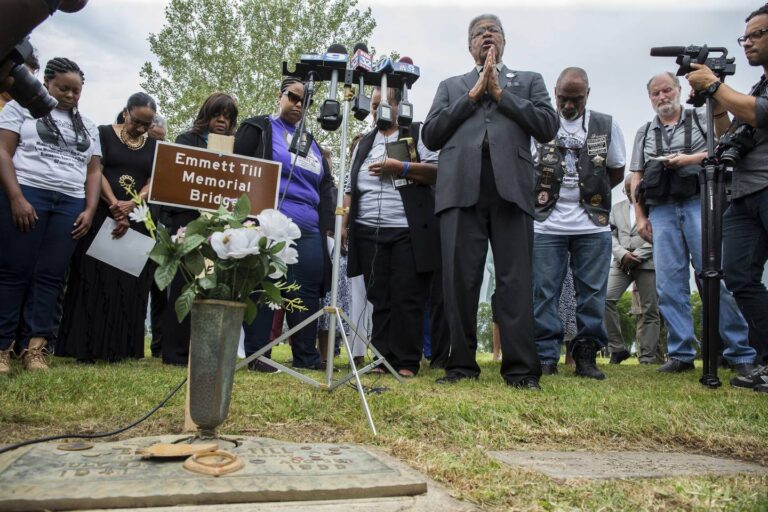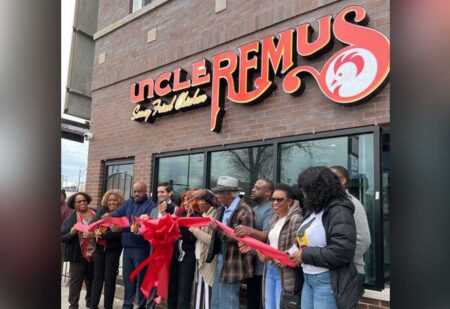When the Rev. Wheeler Parker Jr. thinks of Emmett Till, he sees him running toward home plate with the grace of a lumbering Pullman freight train. Emmett’s slow speed lost their team a softball game, he remembers.
Advertisement
He can still recall a fish Emmett caught — and then lost — at a river by their Argo boyhood homes, in what later became part of southwest suburban Summit. He can still hear Emmett’s strong stutter, and he smiles when he thinks of his cousin’s energetic warmth.
Emmett Till’s funeral was 67 years ago Tuesday. But even as time passes, the boy whose racist lynching and murder captivated America is not just a part of history for the 83-year-old Parker. Emmett Till is a lost best friend.
Advertisement
“He never had a dull day in his life,” Parker said of the younger cousin he “inherited” as a play pal.
Parker, the last living witness of Emmett’s abduction, has also inherited the Emmett Till story. It was thrust upon him, he said, a calling that required him to transcend survivor’s guilt and bashfulness. He has to talk about what happened.
It can be hard; Parker choked up as he spoke at a U.S. Department of Justice Civil Rights Division training in Chicago last week. He remembers little things that trip him up, he said.
He and his wife, Marvel Parker, run the Emmett Till & Mamie Till-Mobley Institute. They are pushing for a national memorial across important sites in the Mississippi Delta and Chicago, like the Bryant’s Grocery store where 14-year-old Emmett supposedly whistled at a white woman before he was kidnapped and murdered.

Inside the small Summit community center the Parkers work from, a painting of that grocery store as it once stood, white and well-adorned, is hung on a wall across from another painting that shows Bryant’s Grocery in its current state: barely standing ruins.
Parker, who returns often to the Mississippi Delta to share his story, can remember the store on that day in 1955.
He and Emmett had been excited to visit family in the rural town of Money, Mississippi, about halfway between Memphis, Tennessee, and Jackson. It wasn’t supposed to be an easy vacation: The boys would be expected to pick cotton alongside their other cousins.
“We did what they did every day. You ain’t going to Riverview or Six Flags,” Parker said with a laugh.
Advertisement
But the boys still made fun. Three days into their trip, they borrowed Parker’s grandfather’s car and drove to Bryant’s Grocery at dusk with some of their cousins, he said.
Parker is insistent on what happened next, in spite of debated history warped by controversial court testimonies and liberties taken by journalists who never bothered to interview him. Emmett didn’t make any advances on the white woman at the grocery store, although he did whistle as she was walking to her car, Parker said.
Emmett’s mother, Mamie Till-Mobley, had said she taught Emmett to whistle to work through his stutter, Parker said.
“This boy doesn’t need any defending. He whistled,” he added. “You don’t kill people for whistling.”
But that whistle was enough to make Parker and their friends “scared to death” in Jim Crow-era Mississippi. The kids decided to go home and not tell Parker’s grandfather what happened.
“This is not over,” Parker remembers a girl who had been with them saying.
Advertisement
“What he did, I know, was a death wish at that time. They protected the system, and still do today,” Parker said of people and agencies in positions of power.
The boys moved on from their fear by the next day, Parker said. But four days later, he awoke to the sound of Emmett’s soon-to-be murderers talking to his grandfather in the middle of the night. They wanted the boy from Chicago, he remembered hearing.
“When I heard him, I said, ‘We’re getting ready to die,’” Parker recalled.
He prayed as the men came into his room and kidnapped his cousin at gunpoint, “praying to the point of almost begging,” he said. “Fear is a terrible thing.”
What came next is hard to remember and describe, he said. He spent a sleepless night in Mississippi before an uncle brought him to the train station the next day. He rode to Memphis, then back to Chicago, where he went to a vigil at Emmett’s mother’s home.
When Emmett’s body was found and the pivotal open-casket funeral took place at Bronzeville’s Roberts Temple Church of God in Christ, Parker felt like he was in a film.
Advertisement
“This is not him. That’s not Emmett right there,” he remembered thinking, feeling no remorse or sadness.
His aunt never asked him about what happened. He felt guilty, he said. No one interviewed him for 30 years, until a WMAQ-Ch. 5 reporter approached his family in the 1980s. But now it’s his story to tell.
“I’m thrown into it,” said Parker, who worked as a barber, photographer and pastor over the years.
He plans to publish his memoir in January, which he wrote by hand. He’ll teach kids across the country about Emmett Till for the next few months as he tours with the Children’s Museum of Indianapolis. And he stood behind President Joe Biden as the Emmett Till Antilynching Act was signed into law in March, finally making lynching a federal hate crime.
He’s driven in part by the demonization of his cousin. Emmett didn’t make advances on the white woman in the grocery store, Parker said. He wasn’t the monster some portrayed him to be.
“How could you say that about my friend?” he still wonders of the narrative put forward by court testimony and public figures at the time.
Advertisement

A Mississippi grand jury decided in early August to not indict Carolyn Bryant Donham, whose accusation of flirting set off the lynching. Some accounts of Till’s abduction suggest that Donham, now in her late 80s, identified Till after her husband kidnapped him. No one has ever been legally punished for the lynching and murder of Emmett Till.
Though Parker has worked to pursue legal justice in the case, he gave up his resentment long ago.
“I knew from the beginning I couldn’t hate anything,” he said.
Parker pointed to the reaction to the murder of George Floyd as proof that progress has been made.
“We’ve come a long way. Believe me, we’ve come a long way,” he said.
[ Emmett Till’s Chicago home to get preservation funds ]
But there is still a lot of work to do. He still picks up on the unwritten, ingrained rules of racial hierarchy at play. When he hears people say they want to “make America great again,” he hears a wish to return to the era when his cousin was lynched, he said.
Advertisement
Sometimes when he speaks, he tells the crowd he’s not there to stir up animosity.

Afternoon Briefing
Daily
Chicago Tribune editors’ top story picks, delivered to your inbox each afternoon.
“I say, ‘Can I talk about history, about the facts of what happened?’ It’s not a pretty story; it’s not a pleasant story. It’s a terrible story, and somebody might feel incriminated,” Parker said.
But in a world where many things have changed and some haven’t, he thinks we still need to hear about Emmett Till.
As he works to keep his cousin’s story alive, he thinks about Emmett not just as a historical fact, but as a loved, once-living person. He wonders what might have happened if the cousins had made different choices. He imagines what those men did to Emmett before his mutilated body was recovered.
He will remember — it’s impossible not to.
Advertisement
“You can’t forget that. It’s there all the time.”
Twitter @jakesheridan_






